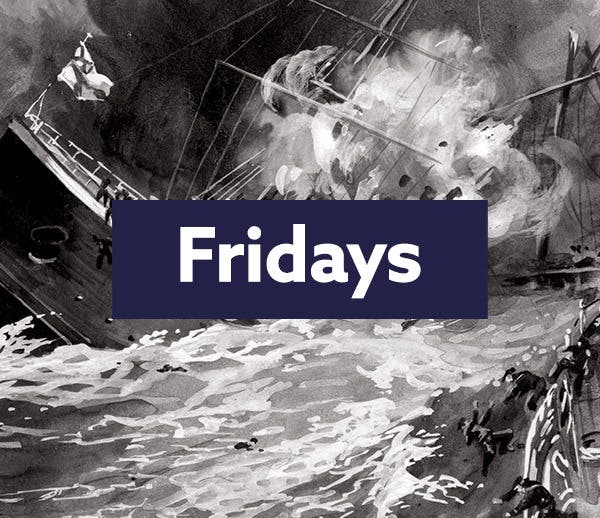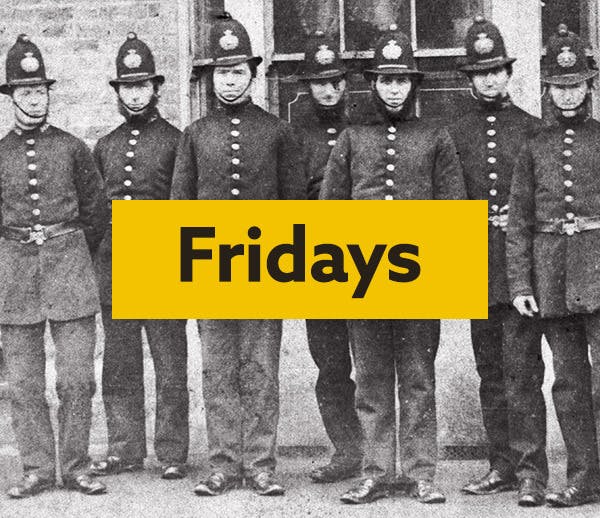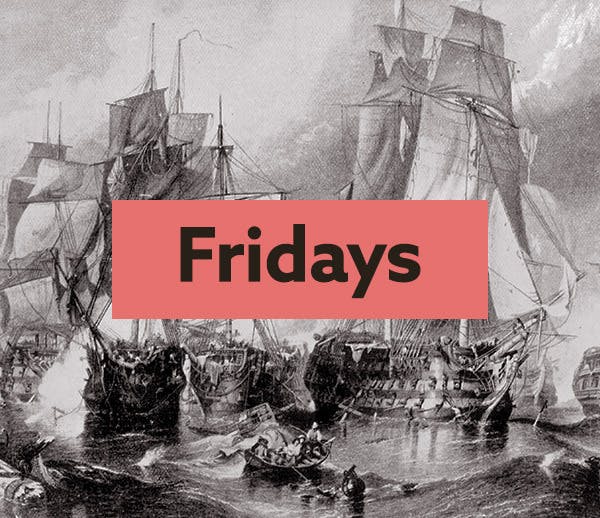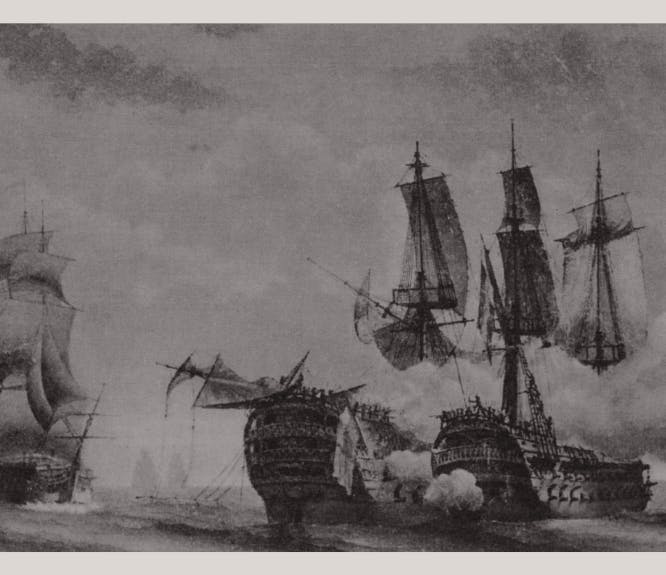Explore over two million historical newspaper pages for FREE
3-4 minute read
By Alex Cox | September 5, 2022
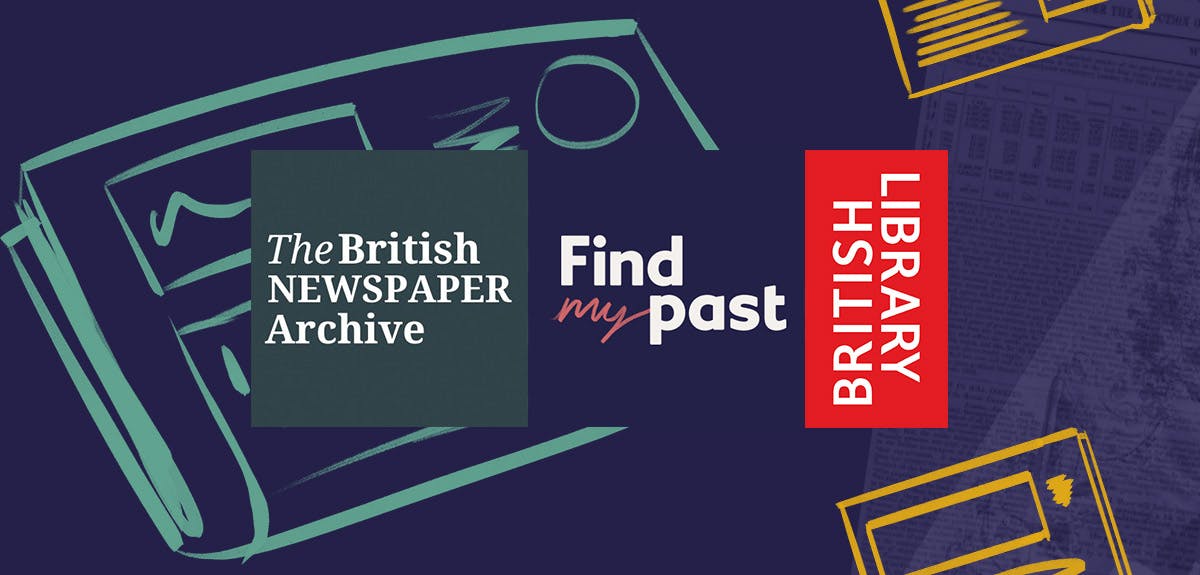
In partnership with the British Library, we've made over two million newspaper pages completely free to search and view. And there's much more to come...
Following the renewal of our long-term partnership with the British Library in 2021, together we've pledged to make millions of historical newspaper pages free to view online.
Over two million pages are now free to search and explore on both Findmypast and our sister site, the British Newspaper Archive. This will be expanded to five million pages over the next three years.
Originally launched in 2011, Findmypast and the British Library’s partnership has delivered the most significant mass digitization of newspapers the UK has ever seen. The British Newspaper Archive and Findmypast are currently home to more than 55 million fully searchable pages from over a thousand regional, national, and specialty titles dating from 2009 all the way back to 1699. Our ever-growing digital catalog covers every corner of the British Isles as well as a number of former British territories including Canada, New Zealand, India, Pakistan, Barbados, and Jamaica.
Previously, this vast cultural treasure was held entirely in hard copy and microfilm, meaning travel and hours of painstaking manual research for anyone wishing to explore its contents. Now anyone, anywhere in the world, can uncover millions of articles across hundreds of titles, in just a few simple clicks.
What newspaper archives are free?
Our two million free newspaper pages span across 403 titles, dating from 1699 to 1900 and covering a diverse array of histories, locations and topics. The newspapers selected were digitised as part of four special British Library projects:
- 19th Century Newspapers: a project funded by the Joint Information Systems Committee and the British Library’s first major newspaper digitization program
- Heritage Made Digital: an ongoing project to transform digital access to rare and early newspapers, focusing on newspapers in a poor or unfit condition
- Living with Machines: another ongoing project, jointly led by the Library and the Alan Turing Institute, which has been digitizing selected UK regional newspapers as part of a major study of the British industrial age and using artificial intelligence tools to undertake new kinds of historical inquiry
- The Endangered Archives Programme: a project that facilitates the digitization of archives around the world that are in danger of destruction, neglect, or physical deterioration
Illuminating diverse stories
Many of the papers included have been specifically chosen to help you shed new light on diverse and previously underrepresented communities and their histories. Highlights from the collection include:
- Barbadian, (1822-1861) – a fascinating Caribbean publication that covers the transition of Barbados from the colonial, pre-modern to the modern era, including the Emancipation (1834), and the end of the apprenticeship system (1838).
- British Emancipator, (1837-1840) – an anti-slavery newspaper that fought for the abolition of the system of apprenticeship, which was put into place after slavery was abolished in the British Colonies.
- British Miner and General Newsman, (1862-1867) – a journal devoted to working miners, which went through a number of titles including The Miner, The Workman’s Advocate and The Commonwealth.
- Cobbett’s Weekly Political Register, (1803-1836) – a famous and hugely information-rich vehicle for the ideas and opinions of the great nineteenth-century radical William Cobbett.
- The Examiner, (1808-1880) – a leading radical weekly, edited by Leigh Hunt, with contributors including William Hazlitt, John Keats and Percy Shelley.
- Illustrated Sporting News and Theatrical and Musical Review, (1862-1870) – a lively, visually rich newspaper covering a wide range of sports and theatrical events, with many fine illustrations.
- Royal Gazette of Jamaica, (1779-1840) – a West Indies newspaper notorious for its slavery advertisements.
- Lady’s Newspaper and Pictorial Times, (1847-1863) - one of the earliest newspapers produced for an exclusively female audience.
- Morning Herald, (1800-1869) – founded in 1780, a national daily that for a number of years rivalled The Times in importance.
- Poor Man’s Guardian, (1831-1835) - the most successful and influential of the radical unstamped (and thus illegal) newspapers of the early 1830s.
- Sun, (1801-1871) – a daily evening national newspaper, founded in 1792, originally with pro-government and anti-French revolutionary stance, before changing to advocate liberal and free trade principles.
Other specialist titles, including illustrated, politically divisive and philosophical newspapers, include:
- Berthold's Political Handkerchief, (1831) - part of the British Library's Heritage Made Digital programme, this newspaper was originally printed on calico fabric to avoid the infamous newspaper stamp tax.
- Illustrated London Life, (1843) - this beautifully illustrated title aimed to ‘embrace and illustrate every description of Metropolitan Life in all its phases and aspects,’ endeavouring ‘to amuse the public without going far from town'.
- Porcupine, (1800-1801) - named after its prickly editor William Corbett, this newspaper was vehemently anti-French and decidedly anti-revolution.
- Francis’s Metropolitan News, (1895) - printer R. S. Francis used blocks of colour to highlight different articles throughout this paper and featured a range of illustrations, making it stand out from its contemporaries.
- The Age, (1852-1853) - a rather infamous title, The Age had a reputation for specialising in ‘scurrilous and satirical gossip’ about celebrities of the day.
- The Patriot, (1832-1866) - this London newspaper presented itself as a moral and philosophical repository for political thought, with editor Matthew Campbell Browne hoping to influence the reform of Parliament and instate an equal Representation of People.
Other highlights include an incredible 80 years of Scottish history documented in the free-to-view Glasgow Herald, spanning 1820-1900, and the 50,000 pages that comprise international title the Friend of India and Statesman between 1852 and 1883.
By providing free access to key areas of this unparalleled resource, Findmypast and the British Library are offering the public unique opportunities to uncover the stories behind historical events both great and small, as they happened; transforming their understanding of both the past and the present. This detail-rich archive sees the lives of ordinary people played out in print. Readers can discover contemporary reports on the struggles of the poor and working class, the daily lives of England’s mining communities, the evils of slavery, the campaign to end them, and much more.
As well as providing free access, our use of Optical Character Recognition (OCR) and machine learning also means exploring these unique resources is easier than ever. You can search billions of lines of printed text by name, date, keyword, or phrase, all from the comfort of your own home.

